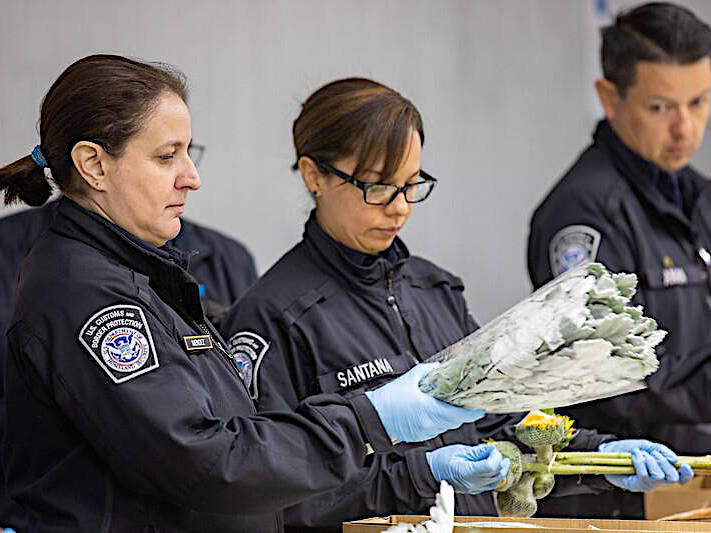CBP Miami Processes the Most Valentines Flowers in the Country
Feb 14, 2020Miami, FL — With Valentine’s Day just around the corner, CBP is working hard to keep the critters out of the flowers you buy for your sweetheart.
Since January 1, CBP has inspected more than 1 billion cut stems transiting through our busiest ports. The majority of flowers are processed through Miami, New York and Los Angeles.
“The work that our men and women at CBP do every day is essential to prevent damages to American agriculture,” said Diane Sabatino, Director of Field Operations in Miami and Tampa. “Our airport serves as the front door for our hemispheric trade.”

The Miami International Airport remains as the top location for cut flower processing and for intercepting actionable pests. During FY2019 Agriculture Specialists inspected 2.5 million stems and over 5,000 actionable pests.
Imported flowers may carry hitchhiking pests and diseases that could cause millions of dollars in damage to the U.S. flower industry and beyond. While the vast majority of flowers entering the country are safe, even one hitchhiking pest or plant disease can cause significant damage to American agriculture. It’s critically important not only to consumers, but to the vitality of the U.S. economy that cut flower imports are carefully inspected by CBP agriculture specialists.
If pests or diseases are found, the shipments may be treated and released, re-exported, or destroyed. Examples of past interceptions found by agriculture specialists include species of Noctuidae and Aphididae, commonly known as the Owlet Moth and aphids respectively.
The top three types of flower shipments in the U.S. during the Valentine’s season so far this year have been roses and mixed bouquets, and the top three countries of origin are Colombia, Ecuador and the Netherlands.
Similar Stories

E-commerce is air cargo golden egg but there’s a downside
View Article
Take-off of French cargo airship startup flying whales neither smooth nor simple but investors keep Faith
View Article
Port of Oakland container volume on track to finish year strong
View Article
Silk Way AFEZCO and FF Construction collaborate to shape the future of Silk Way Cargo Village
View Article
CPaT announces new contract with Romanian based airline, Legend Airlines
View ArticleJAS Worldwide signs SPA with International Airfreight Associates B.V.
JAS Worldwide, a global leader in logistics and supply chain solutions, and International Airfreight Associates (IAA) B.V., a prominent provider of comprehensive Air and Ocean freight services headquartered in the…
View ArticleGet the most up-to-date trending news!
SubscribeIndustry updates and weekly newsletter direct to your inbox!





